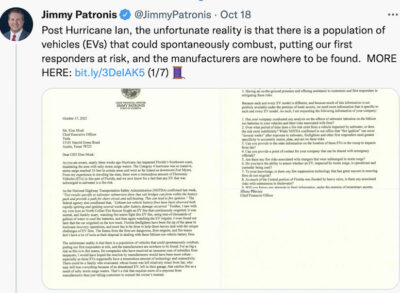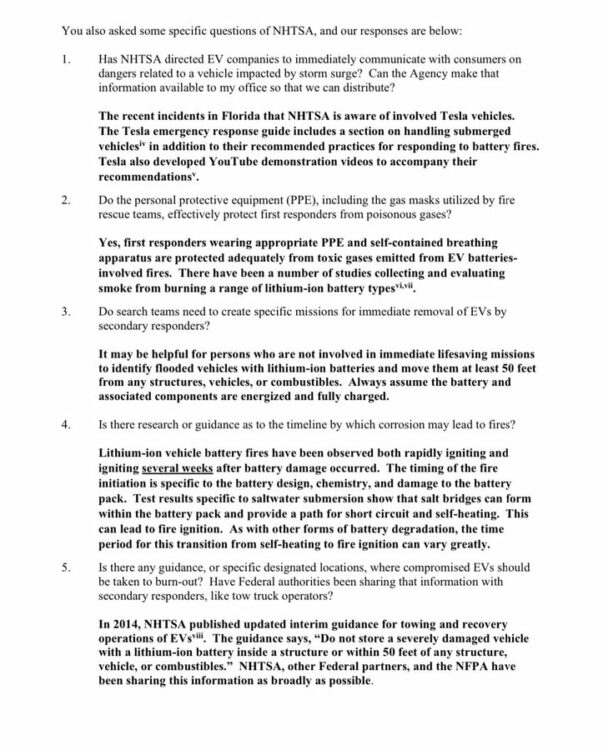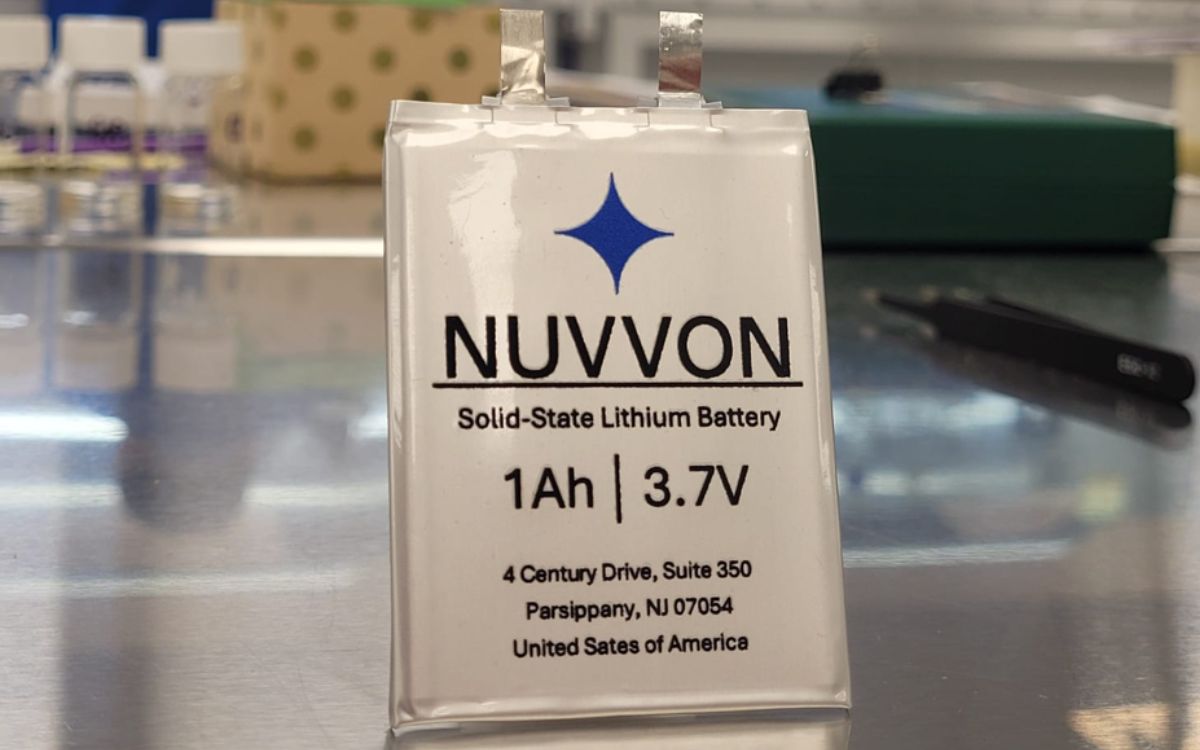Florida’s chief financial officer (CFO) and state fire marshal, Jimmy Patronis, has ripped into electric vehicle (EV) manufacturers over self-igniting battery fire safety concerns. He issued a letter to more than 30 EV manufacturers, including Tesla, Rivian, Ford and GM.
He wrote on Twitter: “Post Hurricane Ian, the unfortunate reality is that there is a population of EVs that could spontaneously combust, putting our first responders at risk, and the manufacturers are nowhere to be found.”

He contacted the EV makers after receiving confirmation from the National Highway Transportation Safety Administration (NHTSA) that cars submerged in salt water can catch fire up to several weeks after battery damage occurs.
Patronis’ letter, addressed to Tesla CEO Elon Musk, said: “For as big a risk as this is to fire teams, for companies who have received an immense sum of subsidies from taxpayers, I would have hoped the reaction by manufacturers would have been more robust – especially as these EVs supposedly have a tremendous amount of technology and connectivity.
“There could be a family who evacuated, whose home was left relatively intact from Ian, who may still lose everything because of an abandoned EV, left in their garage, that catches fire as a result of salty storm surge waters. That’s a risk that requires more of a response from manufacturers than just telling customers to consult the owner’s manual.”
He called on EV makers to reveal information held as trade secrets that could help firefighters deal with these fires, including whether there are any risks associated with submersion in fresh water.
Reply from NHTSA
Patronis previously wrote to the NHTSA, saying salt water reacting with batteries in EVs may be a “ticking time bomb” and cause more fires.
The NHTSA told Patronis in its reply: “Test results specific to saltwater submersion show that salt bridges can form within the battery pack and provide a path for short circuit and self-heating. This can lead to fire ignition.”
Lithium-ion battery vehicle fires can ignite rapidly and “several weeks” after damage occurred, it said. Timing of the fire is specific to battery design, chemistry and damage to the battery pack. Time between self-heating and ignition can vary greatly.
The federal body confirmed Patronis’ experience of fires reigniting “was not an isolated event.” It issued guidance in 2014 after Fisker battery EVs caught fire after salt water submersion as a result of Hurricane Sandy hitting New Jersey.












